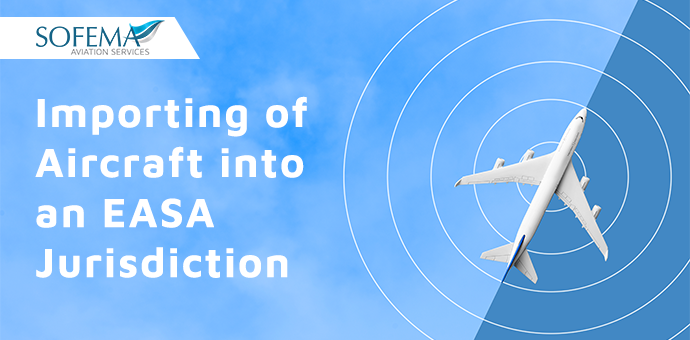Sofema Aviation Services (SAS) www.sassofia.com takes a look at the fundamentals – Importing an Aircraft into an EASA Jurisdiction
Introduction
The key to understanding the Bridging Process is to understand that the MSG 3 AMP is a task-based Program and each task may be considered in isolation as a “Stand Alone” Task (Packaged in accordance with the operators’ maintenance plan).
Let’s consider some of the “rules” we should acknowledge:
1/ The Initial AMP shall be based on the MPD – owned by the Operator and approved by the Regulatory Authority
2/ Because the Operator “owns” the AMP it has the possibility of varying the tasks in some cases escalating even beyond the MPD (this is allowable and acceptable within MSG3 rules)
3/ As a result it may be that the aircraft which is being imported is on a “different” AMP than either the current AMP or the proposed baseline AMP (For a new Operator)
So how to treat the gaps in Task Periodicity?
The possibility exists to perform a bridging check by comparing ALL task Periodicity on the existing (old) AMP with the Periodicity of tasks on the proposed (new) AMP and to determine what maintenance is required as part of the bridging process.
The addition of more aircraft to an existing schedule requires an assessment of the maintenance required to align the aircraft with the new Schedule of Maintenance.
What is the Process for Constructing the Bridging Check?
A survey to establish conformity – typically an Airworthiness Review ARC will be carried out. Together with a calculation to determine the current maintenance position.
An Integration – Transitional work package may be produced to determine the Integration or bridging work package.
The following formula is used in respect of each and every task.
b
X = time remaining to task on new programme
Y = time remaining to task on previous programme
a = interval between tasks on new programme
b = interval between tasks on previous programme
Question: So if we perform a “C Check” prior to the import of the Aircraft – Does the Aircraft require further maintenance I.E. a bridging Check?
Answer: Probably not – however, it will likely affect maintenance requirements going forward.
Final Comments
Until the analysis has been performed it will not be fully understood – however, it is highly unlikely in such a case that maintenance is required “immediately”.
Note the analysis typically forms part of the preparations for the first Airworthiness Review Assessment and will be reviewed by the importing Competent authority.
Next Steps
Follow this link to our Library to find & Download related documents for Free.
Sofema Aviation Services & Sofema Online provide Maintenance Planning, Technical Records and Reliability Training. Please see the websites for details or email [email protected]
Tags:
Aircraft Maintenance, Maintenance Planning, Reliability training, Technical Records, EASA Jurisdiction, Bridging Process, MSG 3 AMP, Aircraft Import, Airworthiness Review Assessment




